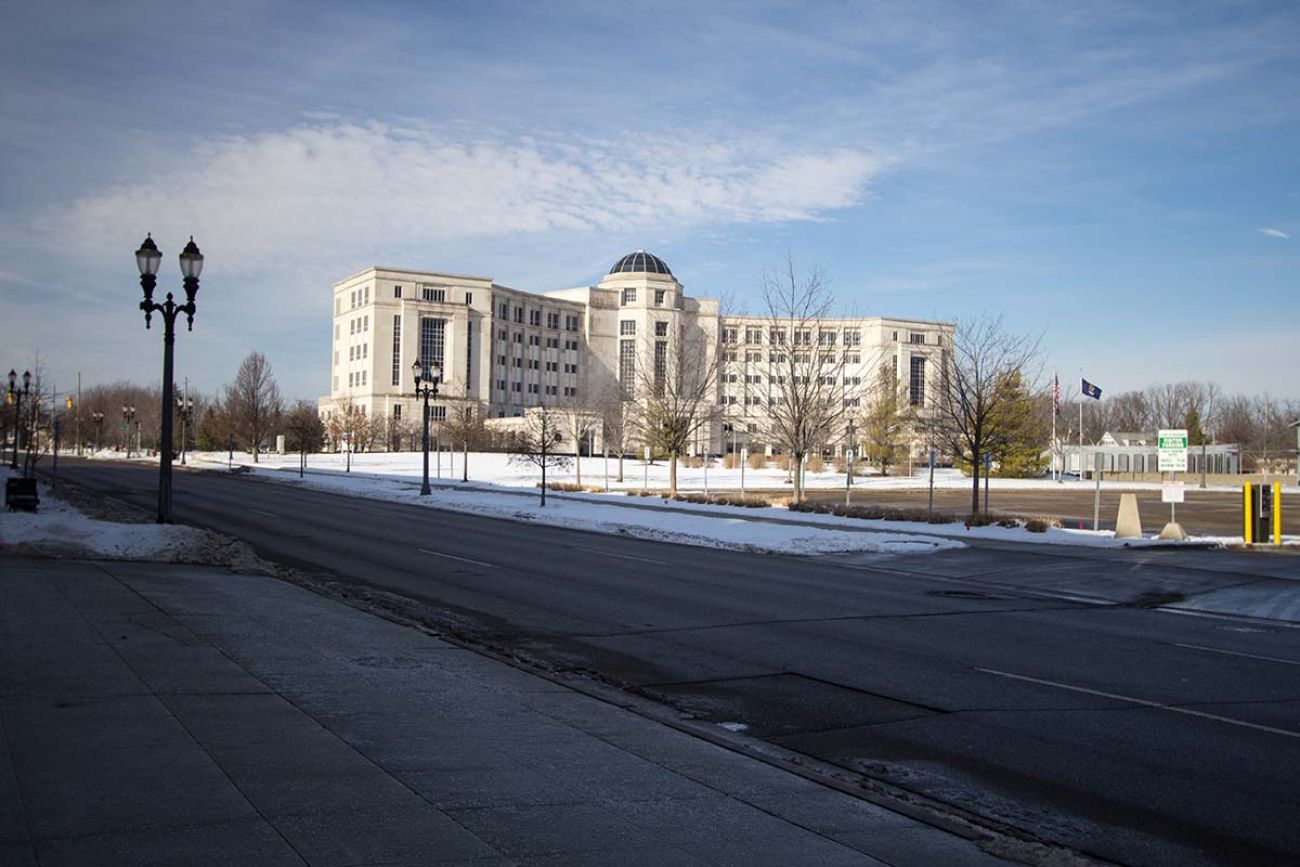Detroit caucus to court: Don’t make Blacks ‘sacrificial lamb’ of redistricting

LANSING— The Michigan Supreme Court could soon decide whether newly-approved state legislative and congressional maps need to be redrawn in order to comply with the U.S. Constitution.
The court heard oral arguments Wednesday in a lawsuit brought by the Detroit Caucus of the Michigan Legislature and over 20 other plaintiffs against the Michigan Independent Redistricting Commission.
They claim the new districts violate the Voting Rights Act, the 1965 federal law, and dilute the voting power of Black voters.
Related:
- Republicans sue redistricting commission over congressional map
- Battle brewing among Michigan Democrats over new political maps
- Michigan Black lawmakers to sue redistricting commission over new maps
Nabih Ayad, a Detroit-based attorney representing the plaintiffs, told the justices the maps would significantly reduce the number of Black elected officials in the state.
“Why should the African Americans be the sacrificial lamb in the state redistricting?” he asked. “It’s not fair.”
Ayad has asked the court to force the commission to redraw the districts in the Detroit area. The Michigan Independent Citizens Redistricting Commission, the newly created group that created the maps, says the districts are fair.
The case is one of two lawsuits against the new districts, which are set to take effect in March. A group of Republicans also is suing over the congressional district boundaries.
After years of maps that gave Republicans an edge, the new maps are more favorable to Democrats. But because of population losses in Detroit and other factors, they significantly reduce the number of districts with a Black voting age population above 50 percent.
Districts last for 10 years, and the ones created in 2010 that were drawn by Republicans in power in Lansing had 17 majority-minority districts in the state Legislature and two congressional seats where the Black voting age population exceeded 50 percent.
Voters created the independent commission in 2018 following complaints the old maps were gerrymandered to keep Republicans in power.
The new maps create five minority-majority seats — all of them are in the state House.
Katherine McKnight, an attorney representing the commission, said the new districts will allow minorities to influence more elections and elect more candidates. Old maps diluted the power of people of color by packing them into lopsided districts, she said.
“What the Voting Rights Act protects is Black-preferred candidates here, and that is not always a Black candidate,” McKnight said. “That's the kind of careful sophisticated analysis that needs to be done and was done” by the commission before drawing the lines.
The commission drew two congressional districts, four state Senate districts, and six state House districts with a Black voting population of at least 40 percent.
Attorneys for the commission contend that is sufficient to have a deciding voice in elections.
But Ayad, the attorney for the plaintiffs, said that based on voting patterns “it's going to take a miracle for” the candidate of choice of Black voters to be elected in districts below 50 percent.
McKnight argued the plaintiffs haven’t proved their case. In order to prove a Voting Rights Act violation, she said, plaintiffs would need to prove the minority community is large enough to create a district with over 50 percent minority voting population, that is politically cohesive, and that a white majority votes cohesively to defeat the minority-preferred candidate.
That isn’t the case, she said, since the commission’s analysis shows there’s white crossover in the over 100 primary elections and general elections in Michigan.
Typically, the Michigan Supreme Court would either dismiss the case, or rule with the plaintiffs and force the redistricting panel to redraw the districts.
However, some justices mentioned the idea of appointing an independent expert to analyze the maps and decide whether they violates the U.S. Constitution
The justices pushed the plaintiffs on their decision to come to court without an independent analysis of the maps.
Ayad said they “don't have the tax dollars that the opposing party has and the hundreds of hours of experts to put in hundreds and hundreds of pages of expert testimony in a short period of time.”
But McKnight said the plaintiffs bear the burden of proof. She added she believes the Michigan Supreme Court doesn’t have the authority to appoint an expert at the expense of the commission.
See what new members are saying about why they donated to Bridge Michigan:
- “In order for this information to be accurate and unbiased it must be underwritten by its readers, not by special interests.” - Larry S.
- “Not many other media sources report on the topics Bridge does.” - Susan B.
- “Your journalism is outstanding and rare these days.” - Mark S.
If you want to ensure the future of nonpartisan, nonprofit Michigan journalism, please become a member today. You, too, will be asked why you donated and maybe we'll feature your quote next time!




